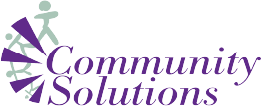About Community Solutions
Since it was founded as a teen drop-in center in 1972, Community Solutions has grown in both depth and breadth of services in response to the growing and changing needs of our community.
Today we provide a comprehensive spectrum of prevention, intervention, treatment, and residential services to the communities of Santa Clara and San Benito Counties. We provide services and support to help children, families, and individuals overcome the challenges posed by mental health issues, substance abuse, trauma, severe family dysfunction, sexual and domestic violence, and human trafficking.
Community Solutions is a nonprofit 501(c)(3) agency, Federal Tax ID: 23-7351215 (Legal Name: Community Solutions for Children, Families and Individuals).
Click here to view our 2023-2026 Strategic Plan Summary


